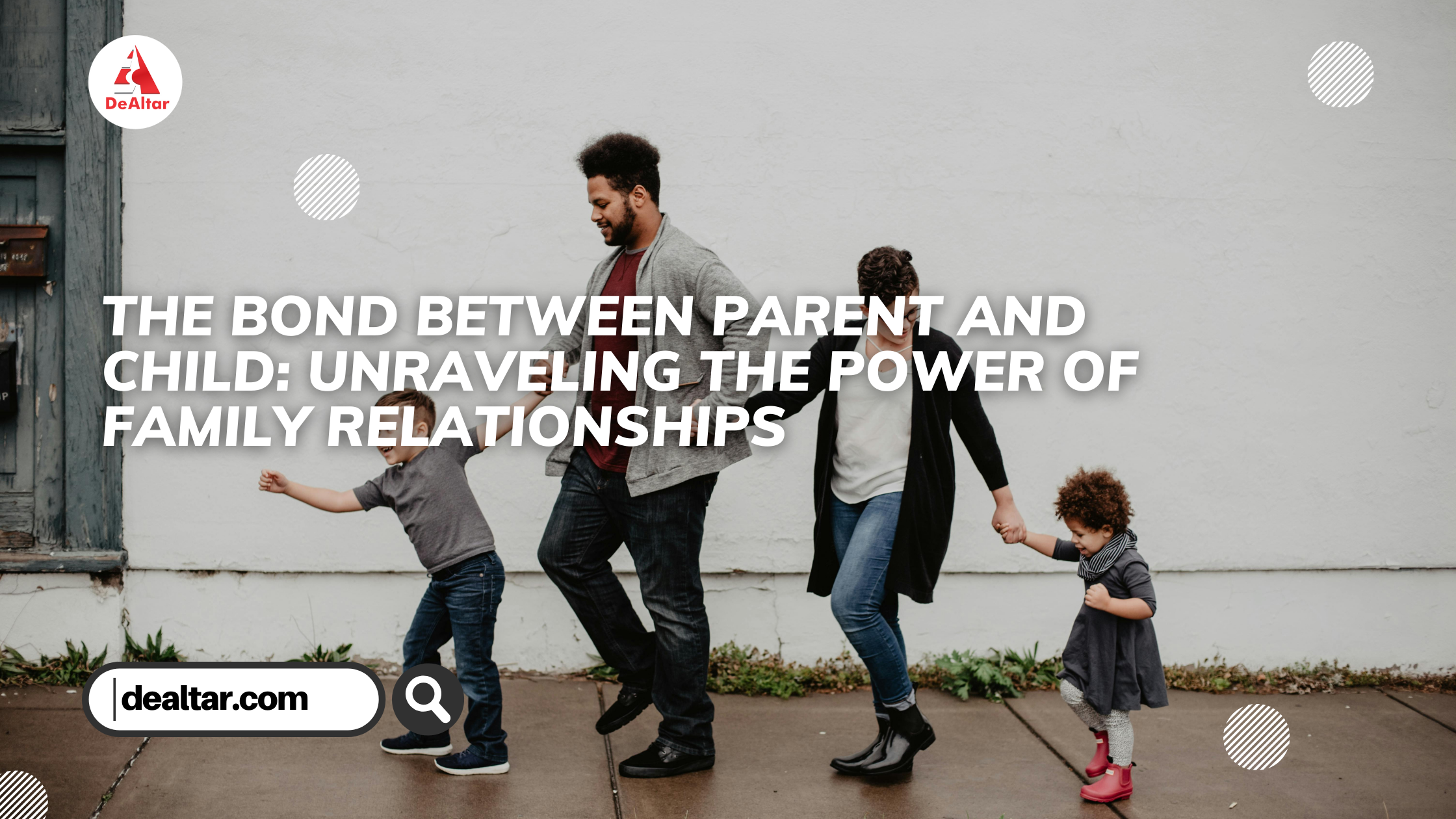The Bond between Parent and Child: Unraveling the Power of Family Relationships
Being an avid reader of James Patterson (James Patterson is a famous American author known for writing thrillers and mysteries), especially his Alex Cross series, I’ve learned a thing or two about criminal behavior, even though the stories are fictional. Alex Cross, the main character, is one of my favorite detectives and psychologist. One thing that always stands out to me is how many of the criminals in these stories have had troubled relationships with their families. They often have abusive parents, were abandoned, or felt emotionally neglected as children. In most cases, Detective Cross frequently investigates a suspect’s family background, particularly how they were as parents if they have children themselves.
Over time, reading these books made me ponder the significance of my family background and bonds. Growing up, I encountered a few bullies who had difficult relationships with their parents and took out their frustrations on others. It made me wonder: Would I have ended up as a dysfunctional adult if I hadn’t received the love and support from my family?
Case Study
A study by UNICEF emphasizes that children thrive when they feel safe, loved, and nurtured. Many parents naturally form a close bond with their children, but for those who didn’t feel cherished or valued during their childhood, this can be a struggle. Another study shows that parent-child bonds are crucial as early as infancy. This made me question how an infant, who barely understands the world around them, could be affected by such early attachments. In infancy, the bond with parents is about meeting basic needs and forming a primary attachment. Lack of consistent care can lead to attachment disorders, which affect mood and behavior, making it difficult to form and maintain relationships later in life. These issues often start in early childhood but can persist into adulthood.
Further research indicates that individuals with a history of insecure attachment are more likely to engage in criminal behavior. This underscores the importance of parent-child bonding in shaping our development and behavior as adults. Despite being children who may not understand the complexities of the world, the absence of a strong parent bond can adversely affect us in our later years.
The parent-child relationship also remains crucial in our adult years. There’s a common saying: “When friends and the world fail you, you’ve got your parents and family to fall back on.” Our parents often play a significant role as our support system. I saw my older siblings rely heavily on our parents’ advice and guidance as they transitioned to adulthood and independence. For me, home and family is where I can truly be myself without judgment.
Here are some reasons why the parent-child bond is so important:
1. Emotional Security:
A nurturing bond with parents provides children with a sense of safety and stability, essential for exploring the world and developing independence.
2. Developmental Support:
Positive interactions with parents support all areas of a child’s development:
- Cognitive Development: Activities like reading, playing, and problem-solving with parents enhance intellectual growth and academic skills.
- Social Development: A strong relationship helps children learn how to interact with others, develop empathy, and build social skills.
- Emotional Development: Sensitive and caring responses to emotional needs help children understand and manage their emotions.
3. Behavioral Guidance:
Children often imitate their parents’ behavior and attitudes. A healthy relationship models positive behavior, teaching values such as respect, responsibility, and compassion.
4. Effective Communication:
A strong bond fosters open and honest communication. When children feel comfortable talking to their parents about their thoughts and feelings, it builds trust and strengthens the relationship. This open communication is crucial for addressing issues, solving problems, and providing guidance.
5. Resilience and Coping Skills:
Supportive relationships with parents help children develop resilience, enabling them to cope with stress, adversity, and setbacks. Knowing they have a reliable support system makes children more likely to persevere through challenges.
6. Long-term Well-being:
The quality of the parent-child relationship has lasting effects on a child’s mental health and well-being. Positive early experiences with parents can lead to healthier relationships in adulthood, better emotional regulation, and a stronger sense of self-worth.
In conclusion,
A healthy parent-child relationship is foundational for a child’s physical, emotional, and psychological development, laying the groundwork for a happy and successful life. As Jane D. Hull said, “At the end of the day, the most overwhelming key to a child’s success is the positive involvement of parents.”

[…] a meal or spending time together can significantly enhance the family’s emotional well-being. When children feel comfortable talking to their parents about their thoughts and feelings, it builds… and strengthens the family […]